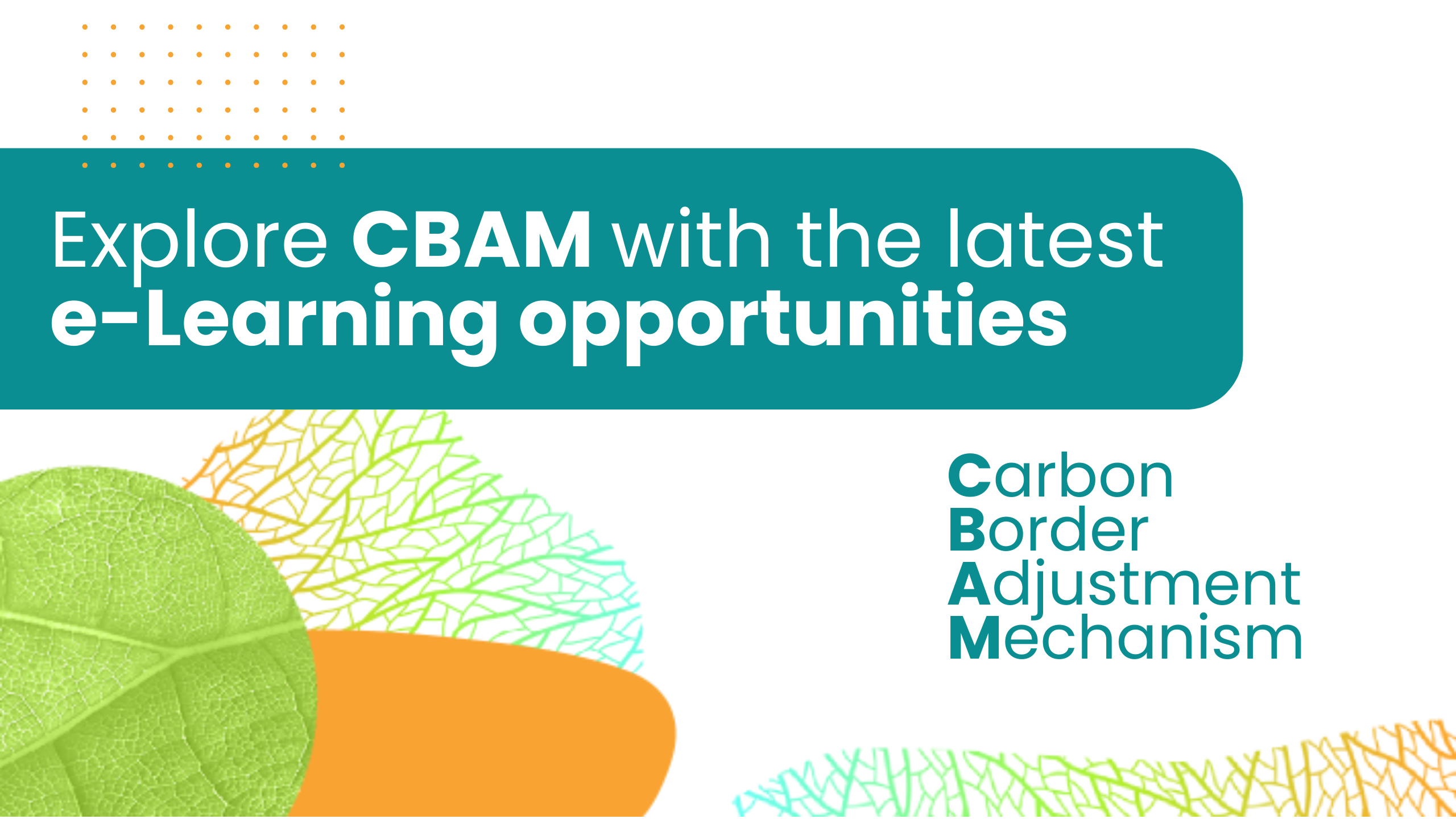Want to learn more about CBAM?

We’re thrilled to announce the release of our brand-new e-Learning opportunities on the Carbon Border Adjustment Mechanism (CBAM), the instrument implemented by the European Union to address carbon leakage.
- The new e-Learning modules include:
‘CBAM Introduction’ nano-learning module: This 10-minute course gives a short high-level introduction to CBAM. Designed for beginners, the module provides concise and comprehensive information on the purpose, structure and substance of the Mechanism. The course is available in English and 10 other languages (Arabic, German, Spanish, French, Hindi, Italian, Korean, Polish, Turkish and Mandarin).
Six sector specific e-Learning modules: Each course, lasting around 45 minutes, allows you to familiarise with CBAM and reporting, methodology and IT system applied to one of the following sectors during the transitional period: cement, aluminium, electricity, iron&steel, hydrogen and fertilisers. Moreover, it presents a real case scenario on reporting in the CBAM Transitional Registry for each specific sector. The cement module is already available in English and 10 other languages (Arabic, German, Spanish, French, Hindi, Italian, Korean, Polish, Turkish and Mandarin). The other modules are currently available in English. The other language versions are currently being developed.
- Recordings of live webinars: Our catalogue is enriched with the recordings of live webinars organised by the European Commission. Led by experts in the field, the sessions provide a deep dive into CBAM, covering key aspects of the six sectors affected by the CBAM regulations during the transitional period and also the CBAM Transitional Registry. One webinar was held for National Competent Authorities in EU Member States. Access to this recording is restricted for the before-mentioned target audience.
